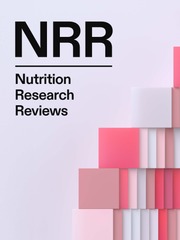Article contents
Dietary triggers in irritable bowel syndrome
Published online by Cambridge University Press: 14 December 2007
Abstract
Irritable bowel syndrome (IBS) is a frequently occurring, benign functional gastrointestinal disorder with a complex poorly understood pathology which appears to be multifactorial in nature. There is no association with structural or biochemical abnormalities in the gastrointestinal tract. Functional variations in myoelectrical activity, visceral hypersensitivity and illness behaviours have all been observed in patients experimentally. In conjunction with environmental, psychological and alimentary factors, these mechanisms have been proposed as the major determinants of symptom genesis. Certainly, dietary factors are frequently perceived by sufferers as powerful symptom triggers, with many reporting multiple food intolerance. Physicians, however, remain divided upon the relevance of food to the disorder, with many eschewing a nutritional connection. This is unsurprising as, despite much experimental work to determine the clinical relevance of food intolerance and allergy to the aetiology of the disorder, the vast range of foodstuffs available for testing, inherent procedural problems with test foods, methodological insufficiencies and the continually evolving knowledge of the disorder, particularly the subgrouping of sufferers, have restricted the scientific validity of current findings. At the present time, it is difficult to make informed judgement upon the importance of food in IBS, and rigorously designed, large scale trials devised in the light of recent knowledge are required before conclusions can be drawn.
- Type
- Research Article
- Information
- Copyright
- Copyright © The Nutrition Society 1998
References
- 5
- Cited by




